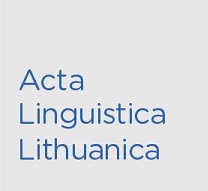FORMA CHRIKʃTIMA (1559) FORMALIUOJU POŽIŪRIU. KUNIGO M. MAŽVYDO AKROSTICHAS
FORMA CHRIKƩTIMA (1559) FROM A FORMAL PERSPECTIVE. ACROSTIC BY PRIEST M. MAŽVYDAS
Author(s): Ilja LemeškinSubject(s): Comparative Linguistics, Lithuanian Literature, Baltic Languages, 16th Century, Theory of Literature, Sociology of Literature
Published by: Lietuvių Kalbos Institutas
Keywords: M. Mažvydas; F. Skorina; acrostic; Catechism; Forma Chrikʃtima; akathist; paratext;
Summary/Abstract: Comparison is the main research tool, but the comparative procedure must be consistently stratified. When we examine the 1559 acrostic, we must compare it with (1) other acrostics by Mažvydas; (2) earlier acrostics that represent the same literary tradition; and (3) identical and similar tools of combinatorial poetics that were realised in a broader historical-cultural context. This in itself sets out the expanding fields of comparative analysis: the indirect means of expression used in the Catechism of 1547, the acrostics of Francisc Scorina, and the acrostics created in the 16th century by European intellectuals from other countries. Despite the national prominence of Mažvydas in Lithuania, his acrostics have not been the subject of in-depth (comparative) research. This article aims to clarify the role (form and content) of the acrostic in the 1559 publication Forma Chrikʃtima, to reveal its interaction with the translated sources, and to identify a possible connection (in terms of identical features) with the acrostics of P. Skorina.
Journal: Acta Linguistica Lithuanica
- Issue Year: 2024
- Issue No: 91
- Page Range: 39-65
- Page Count: 27
- Language: Lithuanian

